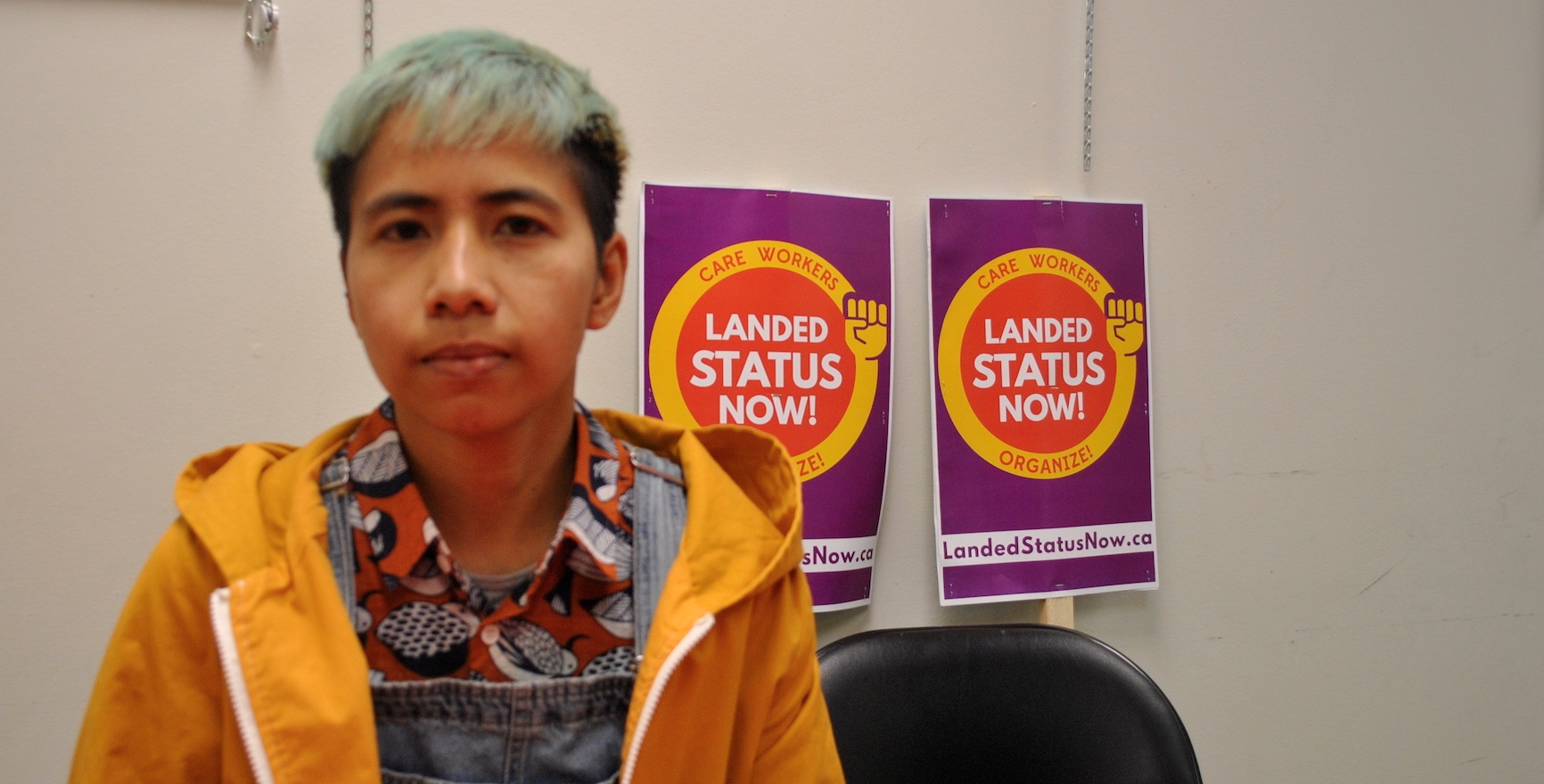Confusion and uncertainty about the Liberal government’s new caregiver program prompted about 50 migrant care workers to gather Sunday, March 17 in Toronto, looking for answers at a closed-door information session at the Caregivers’ Action Centre (CAC).
“I’m not sure what to do, that’s why I’m here,” said Jhoelyn Cruz, who arrived from the Philippines in 2016 under the current “Caring for Children” stream.
On February 23, Immigration Minister Ahmed Hussen announced two new five-year caregiver immigration pilot projects and an interim permanent residency program for care workers already in Canada.
Under the new program — set to replace the current one which would expire in November — care workers will be assessed for eligibility as permanent residents before they come to Canada. If eligible, they can bring their children, spouse or common-law partner to Canada, and would be granted a “pathway to permanent residency” after two years of work experience.
The program would give care workers open work permits, allowing them to change employers quickly. Current work permits are tied to employers, making it hard for workers to leave abusive employers or change jobs if their services are terminated or if elderly employers die.
Hussen also announced an interim, three-month program — from March 4 to June 4, 2019 — allowing care workers who arrived in Canada after the Live-In Caregiver program closed in 2014 to apply for permanent residency if they have completed one year of service, instead of the previous two years.
Although migrant worker groups across Canada welcomed the announcement of open work permits, they said the program still doesn’t end exploitation since it denies workers landed status upon arrival.
The new program “keeps the temporary nature of the system in place, despite evidence that the lack of permanent resident status is the primary reason for migrant worker exploitation,” the Coalition of Migrant Care Workers and the Migrant Workers Alliance for Change said in a statement. A study they conducted last year documented cases of unpaid wages, unpaid overtime, long hours, poor living conditions, sexual violence, and harassment involving care workers across Canada. Most care workers came from the Philippines, Indonesia and Latin America.
The lack of details about the new program has caused some workers to panic, said Kara Manso, who heads the CAC.
There are fears that it will set higher standards for education and English or French proficiency, in which case “a lot of people are going to be left out,” including those who have historically been able to come to Canada under past caregiver programs, she said.
Manso also believes that the three-month period to apply for the interim permanent residency is too short.
Cruz, who could be eligible for this program, agreed. For someone like her who’s earning minimum wage and sending most of it to family back home, three months is a short time to find thousands of dollars to pay for an application fee for her and her family members ($1,040 each) and other related costs like the language proficiency test ($300) and education assessment ($300 to $2,000).
But Cruz worries that if she lets this opportunity pass, she may not get another chance.
Mathieu Genest, spokesperson for Hussen, has told Canadian Press that details will be provided closer to the launch of the new programs.
Manso said some care workers will be unable to meet the one-year work requirement for permanent residency under the interim program “because the system didn’t allow them to continue working.”
This includes workers who lost their jobs and may have found another employer but lost time waiting for a Labour Market Impact Assessment (LMIA) that is required before a work permit can be issued. Workers can lose 13 months waiting for the LMIA and work permit to be issued.
Also excluded are those who became undocumented because they were unable to find another employer and secure a work permit.
“A lot of care workers are here and they are contributing to the country. They’re making sure that Canadian families are taken care of, but they don’t even know what’s going to happen to them,” said Manso. “We’ve been trying to make sure that no one is left behind.”
She said there are no assurances that the program will be implemented since it hinges on whether or not Trudeau’s Liberal government is re-elected in October. “Whatever happens in the election, we want to make sure the program will actually work for care workers.”
The CAC and other migrant workers’ groups have launched an email petition reiterating their call for care workers to get landed status upon arrival, and for further support and rights for all migrant care workers.
Marites N. Sison is a freelance journalist based in Toronto.
Photo: Marites N. Sison
Help make rabble sustainable. Please consider supporting our work with a monthly donation. Support rabble.ca today for as little as $1 per month!




